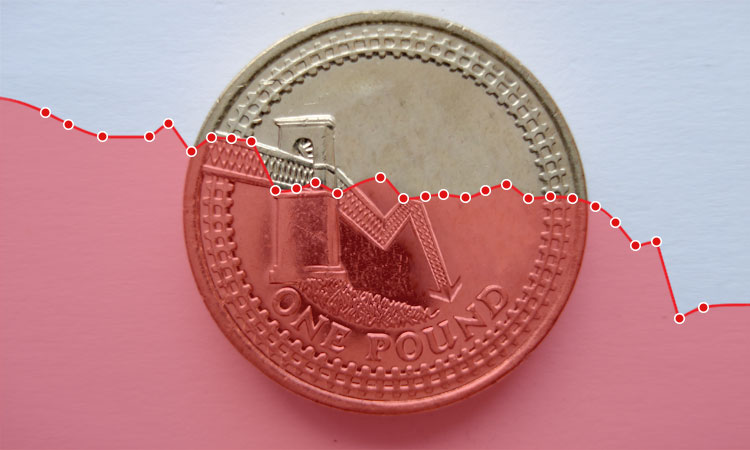
Sandbags aren’t enough
If the previous week was a difficult one for sterling the one just ended was a shocker. In the great scheme of things an average loss of -2.9% for the pound over seven days is not unprecedented. However, in the context of the damage it had already suffered since the end of June it was extremely worrying to supporters of the pound. Sterling was down by three Japanese yen, four euro cents, four Swiss cents and five and a quarter US cents. Its net loss since Brexit Eve now amounts to just over -16%.
In a particularly alarming incident last Thursday night the pound plummeted -6% in next to no time. It quickly recovered the majority of that loss – which was variously attributed to trader error, computer-driven orders or conspiracy – but investors made no attempt to correct the aberration completely. The implication is that nobody wants the pound even when it is artificially cheap.
The good news
The pound cannot continue to fall at its current pace for the next six months until Article 50 is initiated: such things don’t happen to major currencies in real life.
The bad news
Were it to do so, it would have halved in value from its position on 23 June.
No single market, no passporting
Vague though they are, the ideas emanating from Whitehall departments have been less than reassuring to investors. There is particular concern that the government has no interest in keeping Britain in the single market or in retaining the “passporting” arrangement that allows financial firms to operate across the EU. It is perhaps no coincidence that the investors who have been marking down the pound work, themselves, for the financial firms that would be adversely affected by such a change.

ECB red herring
There was a frisson of excitement when the Bloomberg news agency reported that the European Central Bank was considering an early end to its asset-purchase programme. The euro briefly moved higher at the prospect that the ECB was in a mood to turn off the free-money spigot. Then, after due consideration, investors came to the conclusion that the idea was a non-starter. The euro eventually lost a net two thirds of a cent to the US dollar.
RBNZ herring
The NZ dollar came in ahead of the pound but only by less than two cents. It took two hits, the first from an unexpected -3% fall in the GDT index of milk prices. The second was delivered by the assistant governor of the Reserve Bank of New Zealand when he said in a speech that it is likely interest rates have further to fall.
Hawks swoop
The NZ dollar came in ahead of the pound but only by less than two cents. It took two hits, the first from an unexpected -3% fall in the GDT index of milk prices. The second was delivered by the assistant governor of the Reserve Bank of New Zealand when he said in a speech that it is likely interest rates have further to fall.
Sarah, Senior Account Manager at Moneycorp
Moneycorp is one of the largest international payment companies supporting over 90 currencies. Last year Moneycorp traded over £22.6 billion worth of international money transfers. Find out how Moneycorp can help you with your international transfer here.





